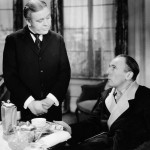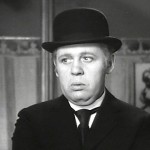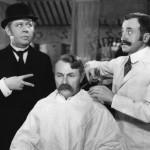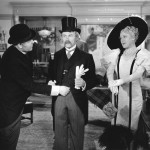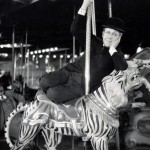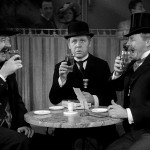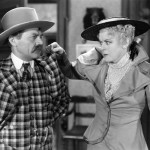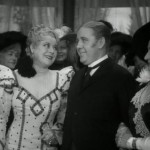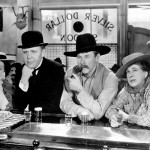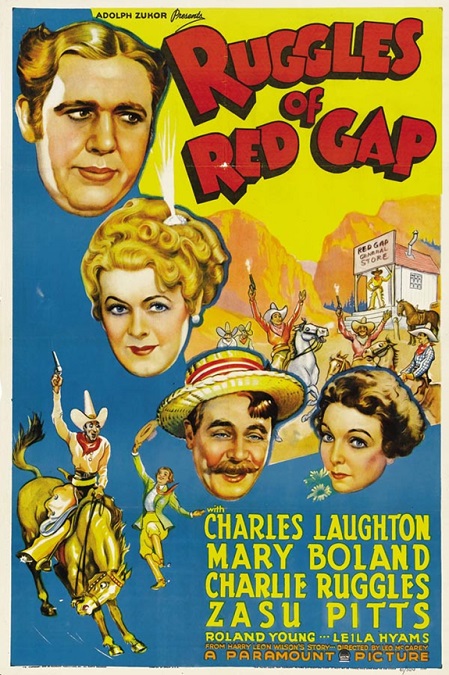
Ruggles of Red Gap – 1935
I went into this movie knowing absolutely nothing about it. I had no expectations, no pre-conceived ideas. Based on the title, I thought it was going to be some kind of war film about a company of soldiers either attacking or defending a place called Red Gap. I couldn’t have been more wrong.
Ruggles refers to a British manservant, played by Charles Laughton, who is lost by his master in a gambling bet. As a result, he moves to the remote Western boomtown town called Red Gap, Washington, with his new employers. They are nouveau riche American millionaires, Egbert and Effie Floud, played by Charlie Ruggles and Mary Boland. They are a crude and uncultured couple, which is in complete contrast to Ruggles’ refined European sensibilities.
You can see the inherent comedy just waiting to burst forth from such a set-up. The clash of cultures is simply rife with awkward moments, misunderstandings, and silly hijinks. And at first, that is how the plot played out. With only a few exceptions, the first half of the movie was fun to watch. The only thing that really bothered me was the extreme moronic and childish behavior of Egbert while he is in Paris. He was a-hootin’ and a-hollerin’ as loud as he could and actually jumped on his American buddy’s back to play horsey in the middle of the Parisian streets. Adults who are not socially retarded do not behave like that.
But while I was rolling my eyes at that kind of thing, I was chuckling at Effie’s uneducated attempts to make herself sound cultured and refined. It is always funny when people make themselves out to be fools when they think they are being hoity-toity. As much as I didn’t like the character of Effie Floud, Mary Boland did a good job. We weren’t supposed to like her.
Charles Laughton did a very good job in the comedic role or Ruggles. When Egbert gets him drunk, he turns to a-hootin’ and a-hollerin’ at the most unexpected moments. His sense of timing was spot on and he was a lot of fun to watch.
I also have to give a special thumbs-up to Charlie Ruggles. His portrayal of Egbert was nothing if not memorable. In fact, there were moments when he stole the show. When Effie took him to have his Western moustache trimmed against his wishes, she tricks him into looking the other way while the barber snips off his handle-bars. His response was to grab the scissors and do the same to the barber. And despite his drunken childish behavior, he was nonetheless charming in a strange kind of way.
However, the second half of the movie changed quite dramatically. Instead of a comedy of clashing cultures, it became a bit of a drama as Ruggles discovers that there is more to live than serving the needs of other people. He develops a sense of independence and learns to serve his own needs and desires. In our American mind-set, that is always a good thing. But there is a small part of me that can’t help thinking that there is nothing wrong with a life spent in service if you find that life fulfilling.
But it is gratifying to see the character of Ruggles blossom into an independent man who can make his own decisions and deal with the consequences on his own. We should all be so lucky.
There were a few other unmemorable subplots that failed to catch my attention. There was the fact that Ruggles’ former employer traveled to Red Gap to reclaim his manservant. Instead, the Earl of Burnstead, played by Roland Young, gets much more than he bargained for. While there, not only does he learn that Ruggles no longer wishes to be anyone’s servant, but he also meets a rowdy singer named Nell Kenner, played by Leila Hyams, and marries her.
The almost melancholy seriousness of the second half of the film climaxes in a scene in which Ruggles recites the famous Gettysburg Address, in which he reminds the folk of Red Gap that all men are created equal. He makes the significant point that a servant is no less a man than his master. I’m beginning to see why Charles Laughton was such a popular actor.
